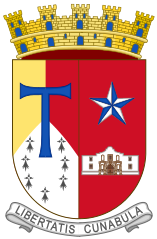Content
In the context of insurance, the role of the custodian is to “guard and maintain” any asset left to your minor child until he or she reaches the age of majority. For example, when an individual applies difference between prime broker and custodian for a Haven Term policy, if he or she indicates that their beneficiary is a minor, we require a custodian to be named. In the event of your death, once your child reaches the age of majority, the custodian is required to turn the assets over to the child. The age of majority (also sometimes called “coming of age”) is 18 in most states, but can be as high as 21. Mutual fund custodians, aside from protecting financial assets, can also track investors’ trades, handle settlements, and make sure money is sent to custodial accounts or to investors or their brokerages.

What is the Difference Between a Custodian Bank and a Mutual Fund Custodian?
Additionally, custodians offer transparent reporting and record-keeping, providing you with accurate and up-to-date information about your account. At Harrison Brook, we’ve recognized this challenge and developed strong partnerships with reputable custodians in both the US and the EU. Our goal is to provide US expats with reliable, respected, and viable investment solutions that meet their unique needs. The account is transferred Proof of personhood to the child once they reach the age of majority, which is either 18 or 21, depending on the state. Each state has specific regulations governing the age of majority and the naming of custodians and alternative custodians. It’s a big responsibility, so knowing a custodian’s role and how to select the right one can seem daunting… which is precisely why we’re going to explain more about this important process.
ACM Named to List of Best Performing Investment Strategies

The assets are usually held at one of the custodian’s premises, a sub-custodian facility, or an outside depository. Online portfolio management services are provided by CI Direct Investing. Think about the people in your life https://www.xcritical.com/ that best align with the general qualities you’re looking for in a guardian and custodian.
How is a guardian different from a custodian?
The Internal Revenue Service has strict rules about what type of custodian can manage your individual retirement account. For example, the custodian must be a bank, savings and loan association, or federally insured credit union. Non-bank custodians – such as your financial advisory firm – must file a written application with the IRS.
The Federal Deposit Insurance Corporation (FDIC) is an independent government insurance agency created by Congress to maintain stability and public confidence in the U.S. financial system. The FDIC provides deposit insurance, which is one of the significant benefits of having an account at an FDIC-insured bank – it’s how the FDIC protects customer money in the unlikely event of a bank failure. The standard insurance amount is $250,000 per depositor, per insured bank, for each account ownership category. Generally, the division of securities services is either grouped with Global Markets to form a larger umbrella of Markets & Securities Services (MSS) or falls under the umbrella of Corporate Banking or Transaction Banking. They perform related activities such as account administration, transaction settlements, the collection and distribution of dividends and fixed-income interest payments, tax support, and foreign exchange management.
CFDs are complex instruments and come with a high risk of losing money rapidly due to leverage. You should consider whether you understand how this product works, and whether you can afford to take the high risk of losing your money. We want to clarify that IG International does not have an official Line account at this time.
Custodians can also be appointed to aid in the oversight and management of financial accounts held by minors and adults unable to care for their affairs due to age, illness, or physical debilitation. A custodian also may be appointed to maintain control of the assets of a minor child or an incapacitated adult and manage them on their behalf. Options trading entails significant risk and is not appropriate for all customers. Customers must read and understand the Characteristics and Risks of Standardized Options before engaging in any options trading strategies. Options transactions are often complex and may involve the potential of losing the entire investment in a relatively short period of time.
All the account’s holdings pass, irrevocably, to the minor at the age of majority. In contrast, many college savings plans, such as 529 accounts, allow parents to retain control of the funds. A custodial account is much simpler and less expensive to establish than a trust fund.
A bank may serve as a custodian for a customer’s investment activities by transferring money into brokerage accounts. Or by looking into potential investment targets like funds and companies, ordering brokers to buy or sell securities. As well as keeping an eye on the account’s investment activities, and informing the account owner of account activity. In the event that the beneficiary is a minor, an adult custodian will be appointed and granted authority to access and make investment decisions regarding the account assets on behalf of the minor. The custodian may be a responsible individual or an institution, but funds are intended for use only by the named beneficiary at a future date in time. Often, a custodian bank does more than provide asset protection.
Mutual fund custodians are third parties who provide security to mutual funds investing in their securities. Generally, however, mutual fund custodians focus on mutual fund companies’ asset types. Custodian banks are required to protect financial assets of individual and institution accounts in a financial institution. It can offer more related services, securities lending, alternative investments and financial instruments when required. Mutual fund custodians are third-party institutions that protect the securities in which mutual funds invest.

Traditional banks also offer investment services like brokerage accounts and financial planning. Custodian banks are important because the security services they offer are needed by both individuals and institutions. They can be of valuable assistance to holders of financial accounts and assets who don’t want to (or can’t) play a role in the day-to-day management of their accounts’ transactions and other activities. Custodian banks also can manage assets, handle reporting, and ensure compliance with regulations. In addition to safeguarding the assets, mutual fund custodians can handle settlements, track investors’ transactions, and ensure that money is deposited in the custodial account or sent to investors (or their brokerages). An investment platform is similar to a broker in which it allows you to transact online to buy, hold and sell securities and managed funds.
- The mutual fund custodian must also maintain transaction records and report activities to the SEC, as required.
- For example, when an individual applies for a Haven Term policy, if he or she indicates that their beneficiary is a minor, we require a custodian to be named.
- They perform related activities such as account administration, transaction settlements, the collection and distribution of dividends and fixed-income interest payments, tax support, and foreign exchange management.
- These types of communications aren’t received by the investor if there is a custodian holding the investments, however.
The securities that individuals and corporations own are safeguarded by a custodian financial institution. And numerous regulatory and accounting procedures are followed, and this serves a vital purpose. Investors or traders frequently find them to be far too difficult or time-consuming. Haven Life is a customer centric life insurance agency that’s backed and wholly owned by Massachusetts Mutual Life Insurance Company (MassMutual). We believe navigating decisions about life insurance, your personal finances and overall wellness can be refreshingly simple. Haven Life is a customer-centric life insurance agency that’s backed and wholly owned by Massachusetts Mutual Life Insurance Company (MassMutual).
They hold onto your financial assets, whether electronic or physical. A custodian is responsible for the safety of the investments you deposit, such as stocks, bonds, jewelry, and gold. When you make a bank deposit to a custodial account, it goes directly to your custodian with your account number. For some custodial accounts, the Internal Revenue Service requires that the custodian be a bank, savings and loan association, or federally insured credit union, or that it has explicit written approval from the IRS. A custodian (also called a custodian bank) can be described as a financial institution specialised in the safekeeping of financial assets, such as equities and bonds, for a firm or an individual. The financial assets can be held in electronic or physical form.
These investor-related services can end up making a huge difference in managers’ operational efficiency. One such area is online reporting and statements, via an investor portal that allows investors self-service access to account information. The primary duty of a third-party custodian is safeguarding assets by sitting between the investment manager and the assets themselves. Though there are very few physical certificates to safekeep anymore, custodians safeguard all assets, including cash, domestic and foreign marketable securities, private partnerships, and securities-related or loan documents. The risks of loss from investing in CFDs can be substantial and the value of your investments may fluctuate. 71% of retail client accounts lose money when trading CFDs, with this investment provider.
I recalled that in some american TV shows, custodian was also another name for a janitor or cleaner. There was something in the back of my mind that heard Custard-ian too. Paystand is on a mission to create a more open financial system,starting with B2B payments. Using blockchain and cloud technology, wepioneered Payments-as-a-Service to digitize and automate your entire cashlifecycle. Our software makes it possible to digitize receivables,automate processing, reduce time-to-cash, eliminate transaction fees, and enable new revenue.
